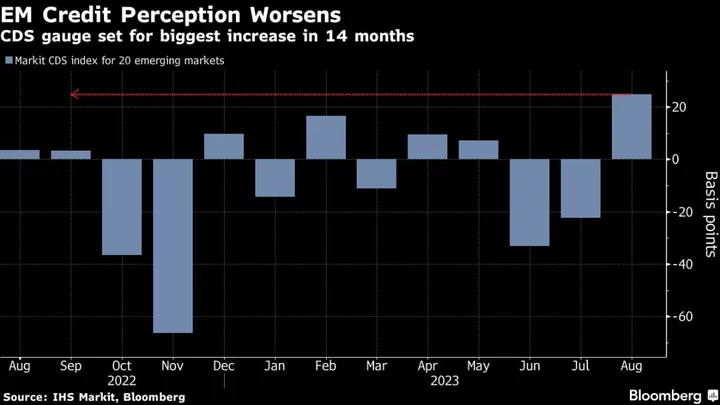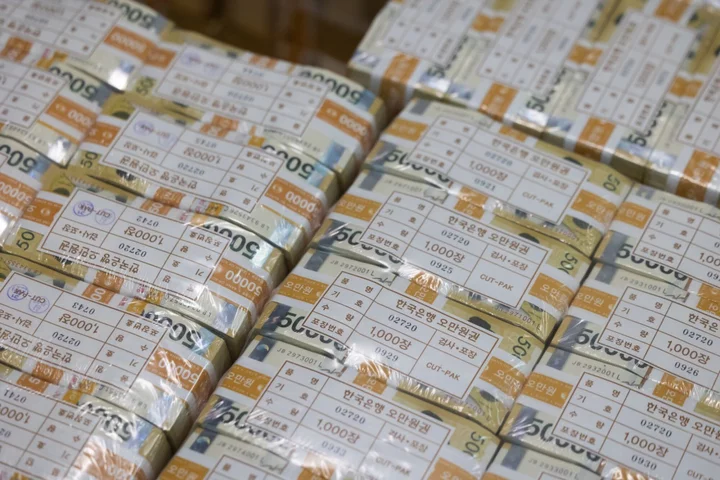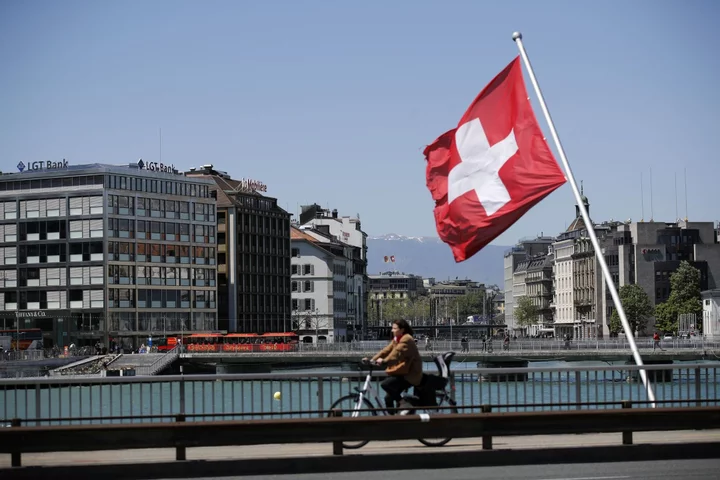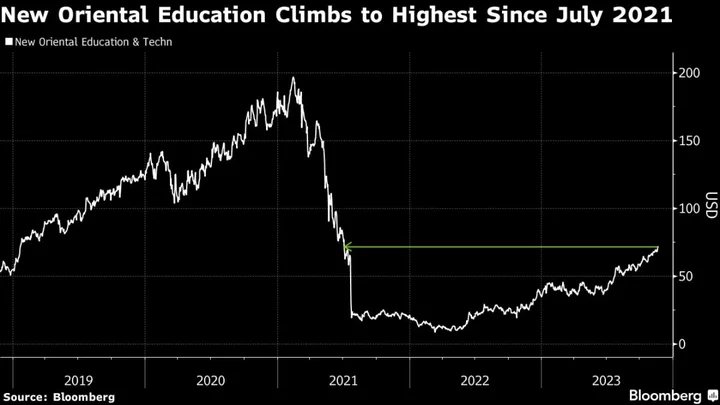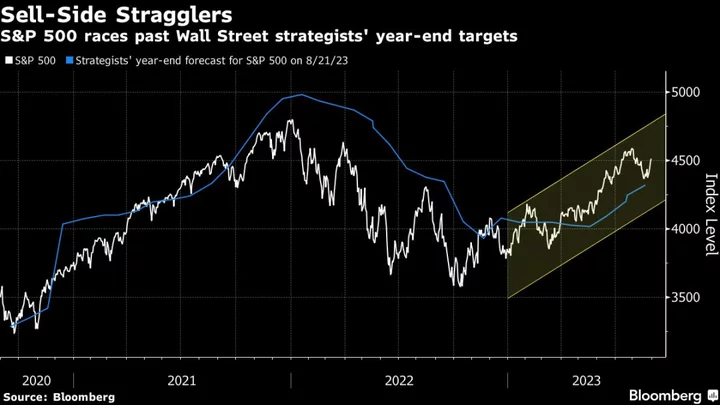The emerging-market selloff that started in equities and spread to currencies this month has now gripped bonds, as traders rush to unwind bets they made on expectations for interest-rate cuts.
The average cost to hedge against a default among 20 emerging economies rose Thursday, heading for the biggest monthly increase since June 2022. Asia led a selloff in the dollar-debt and currency markets as China’s economic, financial and property crises weigh on the continent’s growth outlook. Local-currency bond yields spiked the most in Hungary, Romania and Pakistan.
Traders took two messages from the Federal Reserve minutes released late Wednesday: first, that most US policymakers favor staying on the rate-hike path, and second, that quantitative tightening in the world’s largest economy will continue irrespective of the direction of interest rates. That proved the final straw for a popular trade that was already losing a bit of traction — taking long-bond and rate-receiver positions predicated on the start of an easing cycle.
Read more: Global Yields March to 15-Year Highs as Rate-Hike Worries Build
“While there is scope in selected emerging markets for some easing to occur, there isn’t much scope otherwise,” said Richard Segal, a fixed-income analyst at Ambrosia Capital Ltd. “Inflation has declined but remains well above central-bank targets and gross-domestic-product growth will be above zero in the important countries.”
A gauge of credit default swaps covering developing nations rose to 216 basis points today, taking this month’s increase to 25 basis points. The 10-year yield in Hungary jumped 16 basis points on Thursday, poised for the biggest monthly surge since February. The eastern European country has plunged deeper into a recession, but the tightening global monetary conditions reduce its room to cut rates.
Read more: Hungary 10-Year Yield Premium Over Germany Rises
Philippine dollar-denominated securities sank the most among emerging-market peers after the central bank made hawkish comments while holding interest rates and raising inflation forecasts. Bond yields in Pakistan jumped as a dollar shortage forced factories to halt production; those in Tunisia also rose, after data this week showed the economy slipping into a quarterly contraction.
Read more: Philippines Leaves Key Rate Steady as it Keeps Hawkish Bias
While waning rate-cut bets battered bonds, the renewed potential for carry trades provided a cushion for currencies facing a resurgent dollar. Russia’s ruble, the world’s most volatile currency, posted the best performance among major peers even though a report said the Bank of Russia won’t opt for capital controls.
Read more: Russia Won’t Tighten Capital Controls for Now, Vedomosti Reports
The rand got a boost from signs South Africa’s electricity crisis is easing. The currency steadied from a four-day decline after Minister of Electricity Kgosientsho Ramokgopa said an additional 4,700 megawatts of power will be added to the grid in the next few months. The country’s rolling blackouts have been blamed by strategists as the single biggest factor weighing on the rand.
Read more: South African Electricity Minister Confident of Ending Power Cuts
Ecuador will be in focus at the start of day in the Americas after Fitch Ratings lowered the country’s credit score by one step to CCC+, seven notches below investment grade. The downgrade comes as voters prepare to go to the polls Sunday to choose a president, congress and decide on a referendum that could hinder oil extraction and exploration.
Read more: Ecuador Rating Cut by Fitch After Killing as Election Nears
Meanwhile, traders watched the Argentine peso’s parallel rate, which weakened beyond 700 per dollar on Wednesday because of shifting political dynamics before October general elections. Leading presidential candidate Javier Milei pledged to close the nation’s central bank and make every effort to avoid a default on the country’s sovereign debt if he wins the mandate.
Read more: Milei Vows to Pay Argentina’s Debt, Shutter Central Bank
(Adds Argentina in final section.)

